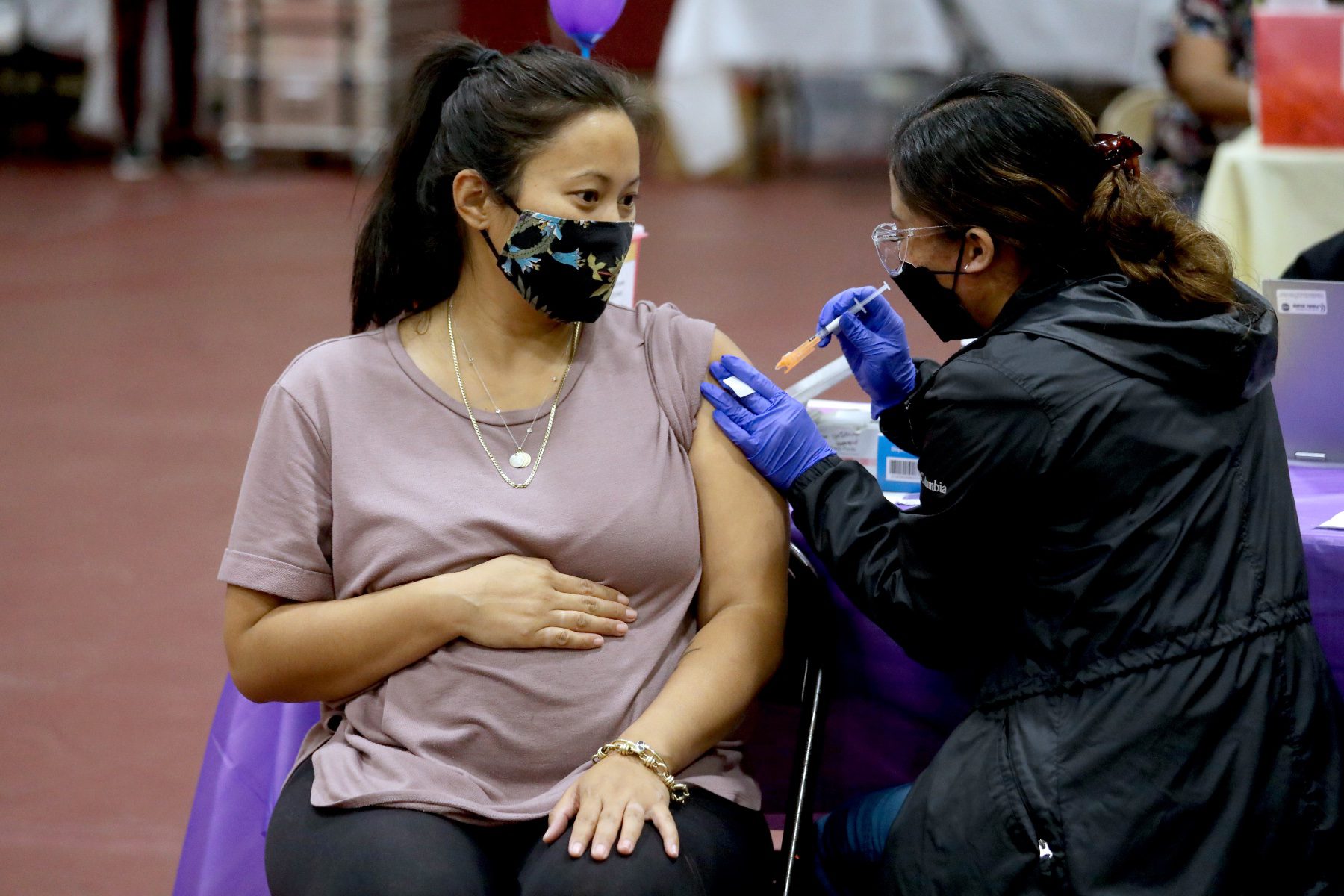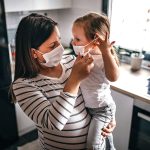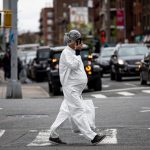New research shows the Pfizer and Moderna COVID-19 vaccines do not reduce the likelihood of becoming pregnant, adding even more evidence against one of the most pervasive myths cited by people who are hesitant or unwilling to get vaccinated.
The research, published Tuesday in the journal Obstetrics and Gynecology — one of the premier medical journals covering birth-related medicine — followed almost 3,000 people undergoing in vitro fertilization.
The researchers identified almost 440 people who were fully vaccinated against the virus with a Pfizer or Moderna vaccine who completed in vitro treatment during the study period, which lasted from February to September 2021. About 1,740 completed the in vitro fertilization process and were completely unvaccinated.
The findings were overwhelming. The study found that the vaccine did not impact a patient’s ability to conceive or affect the health of the pregnancy, even after controlling for any variation in age or health between patients. While the study followed IVF patients, the authors said its findings can be applied to anyone trying to get pregnant or who has recently become pregnant.
“This provides reassuring data for women who specifically are undergoing fertility treatment, but also for all patients who are trying to conceive or are in the early stages of pregnancy,” said Dr. Devora Aharon, a reproductive endocrinologist at the Icahn School of Medicine at Mount Sinai, and the study’s lead author. “COVID-19 vaccines should have no effect.”
Tracking patients through their IVF cycles adds extra detail and clarity for researchers.
“A big advantage of this kind of study is you can look at each individual step in the reproductive process, because everything with IVF is so closely monitored,” said Amelia Wesselink, an epidemiologist at Boston University, who was not affiliated with the study but who has also researched the vaccines’ effects on fertility.
The paper builds on a growing body of research that shows the COVID-19 vaccines — in particular, the messenger RNA-based vaccines developed by Pfizer and Moderna, which are the most widely used COVID shots in the United States — have no negative consequences on one’s ability to get pregnant and to have a healthy birth. The Johnson & Johnson vaccine, which used a different immunization mechanism and which the Centers for Disease Control and Prevention says is not a preferred vaccine in the United States, was not included in the study.
“This is a really nice complement to what’s already known on this topic, and it’s really reassuring,” Wesselink said.
Data published in January from the CDC found no negative side effects among people who were already pregnant and got vaccinated.
Another study published earlier this month, headed by Wesselink, also suggested that a COVID-19 vaccine had no effect on fertility. That paper also found that a COVID-19 infection can lower sperm quality for about 60 days, making it temporarily harder to conceive.
Meanwhile, other evidence shows that unvaccinated pregnant people who contract COVID-19 are more likely to suffer severe complications and even require intensive hospital care, outcomes that could also affect the health of the pregnancy.
“It’s just adding to the evidence that we have that the vaccine is safe and protects patients from severe infection and harmful impacts during pregnancy,” Aharon said.
None of the current research tracks the effect of a COVID-19 vaccine years down the line, because the vaccines themself have only been widely available for less than a year. But based on the science of how the vaccines work, side-effects, on fertility or anything else, should have likely emerged by now.
“Any adverse effects or benefits of the vaccine should appear in the first couple of months,” Wesselink said. “It’s extremely unlikely anything would emerge beyond a few months after vaccination.”
Concerns about the vaccines’ potential impact on fertility have abounded since the shots first became available, persisting even as research builds an ever-clearer picture that getting vaccinated poses no risk to the ability to conceive. Polling from last October showed that about 3 in 10 adults had heard the vaccines could harm fertility, and either believed it to be true or weren’t sure. (For comparison, 3 in 10 is roughly the same number of adults who had either believed Ivermectin — an anti-parasitic pill with no proven benefits in fighting COVID-19 — was a safe treatment for the virus, or were open to the idea.)
Studies like this one could help address those fertility concerns. But convincing unvaccinated people to get the shots remains an uphill battle.
Currently, about 67.4 percent of eligible people in the United States — anyone 5 or older — are fully vaccinated against the virus. (The percentage of people with a third “booster” shot remains far lower.) The contagious Omicron variant so far has not spurred a sizable increase in unvaccinated people getting shots.
Polling from the Kaiser Family Foundation shows that unvaccinated people still say they are unlikely to get the shots. The large majority identify as Republican, suggesting that political affiliation plays a sizable role in vaccine decision-making. But not every unvaccinated person has opted out for political reasons.
With regards to fertility, specifically, Wesselink pointed to a historic oversight among vaccine researchers. Typically, clinical trials do not initially collect data on pregnancy-related issues or side effects. For the COVID-19 vaccines, she said, that oversight may have sowed the seeds for skepticism.
Initially, the COVID-19 vaccines did not include pregnant people in their trials. Researchers also did not initially track where the vaccines had any implications for menstrual health. (Since then, one study has shown a temporary and small effect on the length of one’s menstrual cycle.)
Now, given the role fertility-related health has played in some people’s decision not to get vaccinated, she hopes that vaccine development will pay greater attention to those issues, too.
“It’s been pretty well recognized that concerns about fertility and pregnancy and menstrual health, all these things are really having an effect on people’s decision-making around vaccination,” she said. “We need to be focusing on studying these outcomes for future vaccines and future health innovations and medicines, so we can have rapid, high-quality data that will provide people with what they need to make informed choices.”








